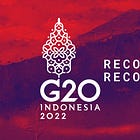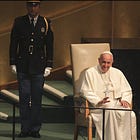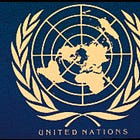While You Were Distracted: UN Adopts Pro-Censorship, Pro-Surveillance Treaty
UN General Assembly Adopts Controversial Cybercrime Treaty Amid Criticism Over Censorship and Surveillance Risks
One-time or recurring donations can be made through Ko-Fi:
By Didi Rankovic December 26, 2024
Global cybercrime treaty faces scrutiny over human rights safeguards and potential misuse of cross-border powers.
As we expected, even though opponents have been warning that the United Nations Convention Against Cybercrime needed to have a narrower scope, strong human rights safeguard and be more clearly defined in order to avoid abuse – the UN General Assembly has just adopted the documents, after five years of wrangling between various stakeholders.
It is now up to UN-member states to first sign, and then ratify the treaty that will come into force three months after the 40th country does that.
The UN bureaucracy is pleased with the development, hailing the convention as a “landmark” and “historic” global treaty that will improve cross-border cooperation against cybercrime and digital threats.
But critics have been saying that speech and human rights might fall victim to the treaty since various UN members treat human rights and privacy in vastly different ways – while the treaty now in a way “standardizes” law enforcement agencies’ investigative powers across borders.
Considerable emphasis has been put by some on how “authoritarian” countries might abuse this new tool meant to tackle online crime – but in reality, this concern applies to any country that ends up ratifying the treaty.
Another point of criticism has been that UN members individually already have laws that address the same issues, rendering the convention superfluous – unless it is to extend some of those authoritarian powers to the countries that don’t formally have them, and can’t outright pass them at home for political reasons.
Since the UN General Assembly adopted the resolution without a vote – after the text was previously agreed on by negotiators – it is not immediately clear how many countries might sign it next year, and ratify what would then become a legally binding document.
In the meanwhile, a spokesperson for UN Secretary-General Antonio Guterres referred to the treaty as “a demonstration of multilateralism.”
Where opponents see potential for undemocratic law enforcement practices spilling over sovereign borders, UN representatives speak about “an unprecedented platform for cooperation” that will allow agencies to exchange evidence, create a safe cyberspace, and protect victims of crimes such as child sexual abuse, scams and money laundering.
And they claim all this will be achieved “while safeguarding human rights online.”
Source: reclaimthenet.org
Related articles:














Of course we all know this is not for the greater good and it is definitely a vehicle for spying on and ultimately controlling the citizenry. Nothing coming out of the UN, WHO, WEF, CDC, etc is for our benefit but most definitely is for our ill.
One world government is the devil's ultimate goal...